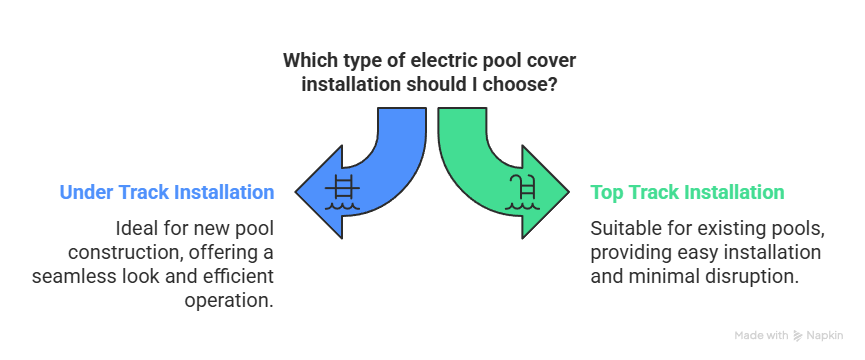Why Do Ladies Love Roofers? (Especially in New Jersey!)
When you think about it, roofers have a certain undeniable charm — especially in New Jersey, where grit meets charisma daily. But why do ladies love roofers so much? It’s not just the rugged good looks or the hard hats (though let’s be honest — that doesn’t hurt). It’s deeper. It’s about the skills, the work ethic, and the character that defines the roofing professionals of the Garden State.

With CJ Commercial Roofing NJ, we’ll get into this curious phenomenon, spotlighting why roofers steal hearts all across New Jersey — from Montclair to Cape May — and why their appeal is more than just skin (or shingle) deep.
1. Roofers Have a Work Ethic That’s Magnetic
One of the biggest reasons ladies are drawn to roofers is simple: strong work ethic.
Roofing isn’t a 9-to-5 desk job. It demands grit, determination, and resilience — especially in New Jersey, where summer sun can bake shingles and winter winds can whip up a brutal chill.
Whether they’re patching a roof in Hoboken or installing a brand-new GAF Timberline HDZ® system in Princeton, roofers demonstrate reliability and perseverance — two traits that signal stability, protection, and capability. And let’s be honest: dependability never goes out of style.
2. There’s Something Incredibly Protective About Them
At the core, roofing is about sheltering people — protecting homes from rain, sleet, snow, and everything else New Jersey’s weather throws at it.
Ladies often subconsciously associate roofers with security and protection — primal needs hardwired into human instincts.
Knowing that someone understands the literal and figurative importance of “keeping a roof over your head” taps into emotional wiring in a way few other professions do. Whether it’s reroofing a historic home in Morristown or replacing asphalt shingles in Atlantic City, the protective instinct is front and center.
3. Physical Strength + Endurance = 🧡
Let’s address the elephant on the roof: roofing is physically demanding.
Carrying bundles of shingles, climbing ladders, balancing on steep pitches — it’s a daily workout.
New Jersey roofers are built like the bridges of Trenton: solid, reliable, and engineered to last. It’s a fact that physical strength and stamina are attractive traits, often linked with vitality and good health.
And hey — the occasional glimpse of a roofer scaling a Victorian in Lambertville, muscles flexing under a T-shirt? Yeah, science says that’s going to trigger a few butterflies.
4. Roofers Have Real Skills (And Skill is Sexy)
We live in a DIY-YouTube world, but let’s be real — watching a true pro lay flashing or align architectural shingles in seamless precision is artistry in motion.
Roofers in New Jersey especially in CJ Commercial Roofing NJ, aren’t just swinging hammers; they’re applying engineering, carpentry, and aesthetic judgment to protect and beautify homes.
Ladies love a man (or woman!) who can build and fix — it’s a timeless, universal admiration.
From slate restoration projects in Red Bank to emergency storm repairs in Toms River, seeing expertise in action is downright magnetic.
5. New Jersey Swagger: The Attitude Factor
If you’re from Jersey, you know: attitude is half the battle.
And roofers have it in spades — the good kind: confident, direct, with a touch of rugged charm and no-nonsense swagger.
It’s not arrogance; it’s assured competence.
Roofers don’t have to pretend they can handle tough situations — they live it. Ladies often admire that kind of grounded, authentic self-confidence, especially when paired with the signature friendliness and humor found from Jersey City to Cherry Hill.
6. Trustworthiness: It’s Literally in the Job
When someone lets a roofer into their home, climbs atop their most valuable asset, and expects a job done right — that’s trust on steroids.
Roofing contractors in New Jersey have to be licensed, insured, and often certified by top manufacturers like Owens Corning® or CertainTeed®.
Ladies notice when someone operates with integrity. A roofer’s reputation is everything — and that kind of reliability resonates not just in business, but personally.
Whether it’s negotiating a new roof replacement in Edison or patching storm damage in Paramus, trust builds attraction.
7. Roofers Understand Weather (And Life) Can Change Fast
Roofers have a front-row seat to the power of nature.
They know how quickly a sunny day can turn into a squall off the Atlantic.
They understand adaptability — and that’s a huge plus in relationships too.
Life isn’t always predictable, and women value partners who can roll with the punches, patch the leaks, and keep everything standing strong even when storms roll in — literally and metaphorically.
Local Spotlight: Roofing Love Across New Jersey
- Red Bank: Ladies appreciate roofers who can master historic restorations without sacrificing charm.
- Asbury Park: Cool indie vibes meet craftsmen who actually fix things.
- Princeton: Smart roofing choices (think solar integration!) win smart hearts.
- Cape May: Victorian homes need Victorian-era skills; the roofers here are preservation artists.
- Newark: High-rise and complex industrial roofing experts show off precision and urban swagger.
No matter the town, New Jersey roofers prove again and again: skills + strength + heart = swoon.
Final Thoughts: It’s More Than Just Shingles and Nails
At the end of the day, why do ladies love roofers?
Because roofers embody the traits that truly matter:
✅ Strength
✅ Reliability
✅ Protection
✅ Skill
✅ Confidence
✅ Authenticity
And maybe, just maybe, because there’s something wildly romantic about someone who spends their days battling the elements to keep families safe and secure.
So next time you see a roofer clambering onto a roof in New Brunswick or Sea Bright, give a little smile — chances are, you’re not the only one admiring them.
Roofers of New Jersey — you’re not just building roofs. You’re building admiration, brick by brick, shingle by shingle.



